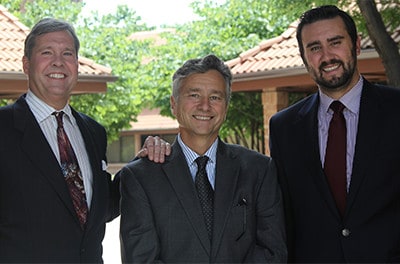 Unfortunately, traumatic brain injuries are very common. According to the National Center for Injury Prevention and Control, brain injuries account for 2.2 million emergency room visits each and every year in the United States. Sadly, this results in more than 50,000 fatalities.
Unfortunately, traumatic brain injuries are very common. According to the National Center for Injury Prevention and Control, brain injuries account for 2.2 million emergency room visits each and every year in the United States. Sadly, this results in more than 50,000 fatalities.
Traumatic brain injury victims often have a long road to recovery before them. After an accident, they may find themselves spending months in and out of hospitals, rehabilitation centers, and long-term care facilities. They may have to re-learn basic functions and they may suffer from permanent disability as a result of their injury. Now, it seems, TBI victims may be at an increased risk for suicide.
A new study published in the medical journal JAMA found that suicide risk was nearly doubled for those individuals who had previously suffered a traumatic brain injury. Researchers examined 34,529 deaths by suicide and discovered that traumatic brain injury patients with longer hospitalizations were at the highest risk for committing suicide in the six months following discharge. This research sheds some additional light on the long-term complications and consequences of a traumatic brain injury.
Further Reading: Fatal Accidents and the Youth
Dr. Madsen, the lead author of the study, believes that TBIs can impact the brain’s function due to the inflammation and damage to the surrounding vessels in the brain. This in turn disrupts the brain’s natural functions and can increase the risk of mental health disorders and suicide. It can also increase the risk of post-traumatic epilepsy and dementia.
Where there are effects of repeated brain injuries, these risks are even more severe. Athletes and victims of car multiple accidents can suffer a long-term condition known as chronic traumatic encephalopathy. This often results in mood disorders and suicidal tendencies. One of the most notable examples of this was in the suicidal death of NFL player Junior Seau. Known for his hard hitting and aggressive playing style, Junior Seau committed suicide two years after retiring as one of the premier linebackers in NFL history. According to doctors, he suffered from chronic traumatic encephalopathy resulting from years of concussions and brain trauma experienced on the field.
Contact Our Experienced Arvada Car Accident Lawyers
 If you have suffered a brain injury or concussion after a car accident in Arvada, it is important to know the long-term consequences you could face. Our Arvada car accident lawyers know how serious traumatic brain injuries can be and we fight aggressively to ensure that all our clients have the money they need to recover. At Hull & Zimmerman, P.C., our committed car accident lawyers are dedicated to the belief that everyone deserves justice. Contact us at (303) 423-1770 or (866) 385-3505.
If you have suffered a brain injury or concussion after a car accident in Arvada, it is important to know the long-term consequences you could face. Our Arvada car accident lawyers know how serious traumatic brain injuries can be and we fight aggressively to ensure that all our clients have the money they need to recover. At Hull & Zimmerman, P.C., our committed car accident lawyers are dedicated to the belief that everyone deserves justice. Contact us at (303) 423-1770 or (866) 385-3505.

